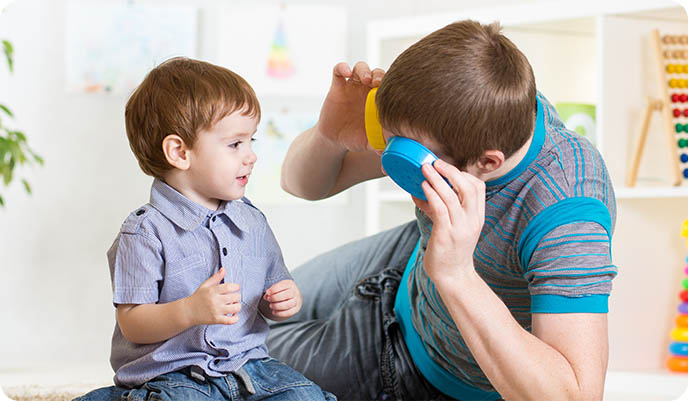We’ve all been through it, one minute your little one is having a cuddle, as content as can be, and the next they’re screaming, crying and hitting - welcome to the wonderful world of terrible twos!
Toddlers are widely known for having temper tantrums, and these usually begin to happen from 18 months onwards. So why do temper tantrums happen so suddenly? And what can we do as parents to keep our little ones feeling content and happy? Read on to hear our top tips for reducing temper tantrums.
WHY DO TODDLERS HAVE TEMPER TANTRUMS?

Toddler tantrums are a normal part of any child’s development, they are basically our child’s way of letting us know something is bothering them. One of the main reasons your toddler may act out is that they want to express themselves, but find it hard to communicate what the problem may be. This frustration can happen due to the smallest things, from a lost toy, or being hungry, to simply being bored and wanting some attention.
Although tantrums usually subside by the age of 4, having a few methods for calming your toddler down quickly and efficiently will hopefully benefit you both in the long run.
HOW TO DEAL WITH A TEMPER TANTRUM

Find the cause
Getting to the root of the problem before the situation escalates can make stopping the tantrum that much easier. We recommend considering what your little one was doing before the problem started and resolving the issue from there. For example, is it near their bedtime? They may be tired and fighting to stay awake, but they can’t tell you that as they simply don’t have the words!
Remember to keep calm
We understand that trying to calm down a tantrum-throwing toddler can be a difficult task, and it’s very easy to feel frustration towards your little one. Although tempting, try not to resort to shouting back at your toddler, as this can be received negatively and lead to an even longer tantrum! Our advice is to take some deep breaths and, if you’re in a private place and are really struggling to handle your emotions, leave the room for a few minutes until you feel calmer; this will also teach your little one that throwing a tantrum won’t get your attention (of course only leave your child in a safe environment).
Distract them
If your little one is having a tantrum over something small, a distraction can be the perfect way to take their minds off of it. A great way to cause a distraction is to do something silly, this can include bursting into song, challenging them to a race or pointing to a random object and acting surprised. You might feel a bit foolish in the process, but your toddler may be so surprised that they forget what was causing them to be upset in the first place!
Be affectionate
Although it might feel like the completely wrong time, sometimes giving your child physical contact can be exactly what they need, just like grown-ups when we’re upset and need a hug. If your little one seems more upset than angry, try simply holding them for a few minutes until the worst of the tantrum subsides. Your toddler may resist at first, but quietly shushing them and patting their back can help to create a calming environment.
Stand your ground
Although it may feel like the easy route to immediately give your little one what they want, this can lead to them learning that bad behaviour results in rewards. If your toddler is throwing a tantrum because they want something, we would recommend staying consistent. If you said no to them having a second cookie, try not to give in to their demands or change your answer - you can do this!
HOW TO PREVENT TEMPER TANTRUMS

Take your time
Trying to rush your toddler through the door every morning for nursery can more times than not end up with them becoming worked up, and lead to more screaming and shouting than you’d like on a Monday morning. A great tip is to always plan your morning routine ahead the night before; having shoes, outfits and coats picked out, ready for in the morning, can really make all the difference when getting your little one up and out in time.
Offer a choice
Instead of directly telling your little one what you’d like them to do, consider offering them a choice between two options. For example, if they’re demanding something sweet before bed, instead of directly telling them they can’t have it, offer a few alternatives to distract them away from what they wanted in the first place. This is also a great way to convince them to eat their fruit and veggies.
Little reminders make all the difference
In situations where a choice isn’t available, reminding your little one of the rules you’ve set out beforehand can lead to much easier experiences in the future. For example, before you have a playdate with their friends, remind them that they need to be open to sharing their toys, finish off the talk with a high five and some words of encouragement, it’ll really lift their spirits and be something they remember.
Raising a child is one of the most amazing experiences you can have, and although it’s not always easy, rest assured you’re doing an amazing job - no matter how much your toddler may be telling you otherwise. You’ve got this!
Got any more tips for how to keep your little ones feeling calm and happy? Send us a message on Facebook or Instagram, we’d love to hear them!
Related posts
Metanium Nappy Rash Ointment is a medicine. Always read the label.




